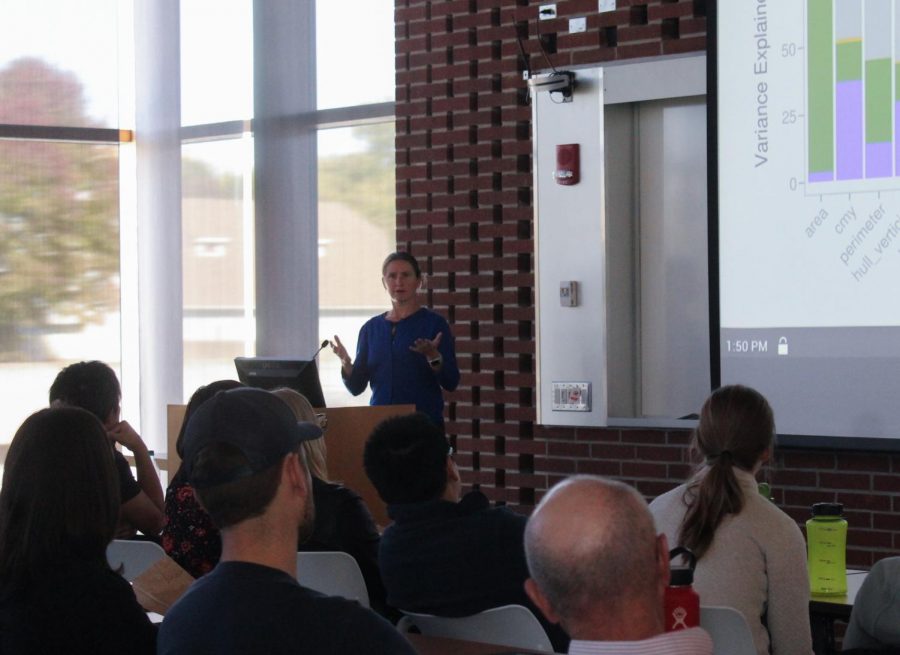Event highlights new plant research facility
Studies in phenomics will help university be competitive in field
OLIVIA WOLF | THE DAILY EVERGREEN
Becky Bart, of Donald Danforth Plant Science Center, gives a speech at the Plant Phenomics Symposium Tuesday afternoon in the PACCAR Environmental Technology Building.
September 19, 2018
The Plant Phenomics Symposium celebrated the installment of the new phenomics facility in Johnson Hall on Tuesday.
The new phenocenter was secured through a grant from the M.J. Murdock Charitable Trust authored by Kiwamn Tanaka, Henning Kunz, Karen Sanguinet, Scot Hulbert, Zhiwu Zhang and Helmut Kirchoff.
The symposium, held in the PACCAR Environmental Technology building, was a partnership between the College of Arts and Sciences and the College of Agricultural, Human and Natural Resource Sciences, Karen Sanguinet, assistant professor for crop and soil sciences, said.
“The purpose of this event was to kick off the new facility, celebrate our grant and bring the local phenomics community together, as well as people from all over the country doing phenomics research,” Sanguinet said.
The Plant Phenomics Symposium featured speakers from the Donald Danforth Plant Science Center, LemnaTec, the Pacific Northwest National Laboratory and other professors from universities around the country.
The equipment for the phenomics facility was purchased through LemnaTec, a plant phenotyping system company, Scot Hulbert, a professor of plant pathology at WSU, said.
Phenomics is the study of phenotypes, Sanguinet said. It is a catalog of different genotypes of an organism, and researchers in this field also look at how the environment effects these genotypes.
“Phenomics looks at methods of looking at an organism and using methods that tell you way more than what you can see with just your eye,” Hulbert said.
Plant phenomics researchers use cameras, wavelengths and infrared tools to learn more about plant breeding and the basic biology of the plants, he said.
WSU has conducted research in the field of plant phenomics for many years. A phenomics greenhouse platform is run by Kirchoff and the Institute of Biological Chemistry, Sanguinet said.
“Phenomics is an emerging field and technology,” Sanguinet said. “To keep pace with other land grant institutions, USDA scientists and private sector scientists, we are implementing several phenomics platforms.”






















